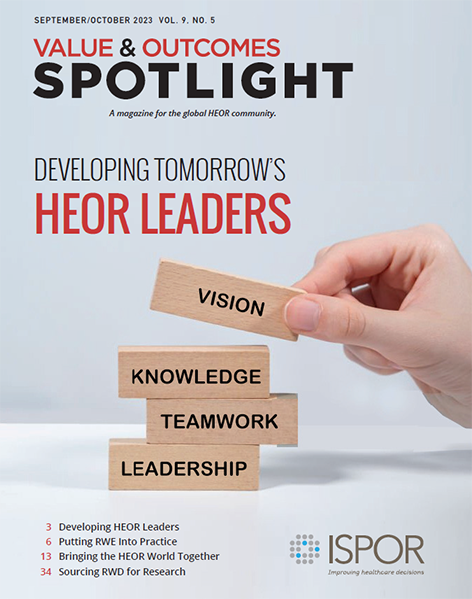Developing Tomorrow’s HEOR Leaders
 Does this sound familiar?
Does this sound familiar?
We have an opening in our health economics and outcomes research (HEOR) department and need to fill that position as soon as possible. We have interviewed a considerable number of candidates but we are unable to identify the right person. So, we are not sure if we should go ahead and hire the best candidate from our current pool with the hope that we can train and develop them for what we need or do we wait and continue to search for the best candidate? If we continue with our search, it may take a long time and we might risk losing the position and be unable to hire anyone.
Whether in the pharmaceutical industry, consulting, or academia, this situation is more often the dilemma facing hiring managers—all of which are in search of talented individuals with a desirable skill set that allows those hires to be productive and contribute to an organization immediately.
As today’s healthcare environment is evolving with new drug targets, innovative drug therapies, new technologies, digital health, artificial intelligence, and robotics, it will become more critical for HEOR professionals to apply new methods, model cost-effectiveness, and measure health outcomes to demonstrate value and impact from various perspectives, including those of providers, payers, patients, and caregivers. It will also be important for those professionals to have the skills to adapt to a hybrid work environment, as we are already seeing many companies incorporate hybrid work into their organizations. Many have embraced this hybrid model as it has allowed them to recruit around the world yielding a more diverse workforce than ever before. This situation has ushered in a new level of training and development focused on cultural competence in support of creating a respectful and inclusive workplace.
To develop tomorrow’s HEOR leaders, it is essential to provide them with the necessary skills and knowledge to succeed in the field. Core HEOR skills are usually gained through master’s and doctoral degrees offered by formal academic programs at colleges and universities. Post-doctoral fellowships are also available and offered by pharmaceutical and consulting companies in partnership with academic HEOR programs. These fellowships provide additional HEOR academic training and research, as well as hands-on application of these learnings at the sponsor companies. Additional avenues for obtaining HEOR training are available (eg, HEOR certificate programs, short courses [which are offered by many organizations such as ISPOR], webinars, targeted training by organizations, as well as short-term internships available at many companies).
Along with technical training, essential soft skills are also important for the development of HEOR professionals. For example, effective communication and interpersonal skills, leadership, problem-solving, teamwork, critical thinking, collaboration, and time management are personal qualities and traits critical for any successful HEOR professional. The ISPOR HEOR Competencies Framework highlights the various competencies that professionals need for success in the field of HEOR. These competencies should be incorporated in academic training, as well as continuous development of HEOR professionals.
Mentorship is another valuable tool for both personal and professional development in HEOR. It establishes a collaborative relationship between experienced and new professionals and students, playing a key role in the development of all parties involved. Mentorship builds confidence and character, challenges comfort zones, and creates lasting connections. It helps to establish an independent and productive professional, assists the mentees in establishing clear learning goals and professional relationships, and stimulates the mentees to acquire both theoretical knowledge and practical skills. Good mentorship benefits not only students and new professionals as mentees but also the mentors and institutions that support them. Mentorships also enhance medical and health professions overall by facilitating the process of sharing knowledge between disciplines and generations.
Developing tomorrow’s HEOR leaders requires a comprehensive approach that includes education, training, and practical experience. To be successful in the field, HEOR professionals must have a solid foundation in not only HEOR but also epidemiology, biostatistics, and clinical research methodology. They must also be able to communicate effectively with stakeholders, including patients, healthcare providers, payers, and policy makers. By providing aspiring professionals with the necessary skills and knowledge, we can ensure that they are equipped to make informed decisions that improve healthcare outcomes for patients around the world.
As always, I welcome input from our readers. Please feel free to email me at zeba.m.khan@hotmail.com.

